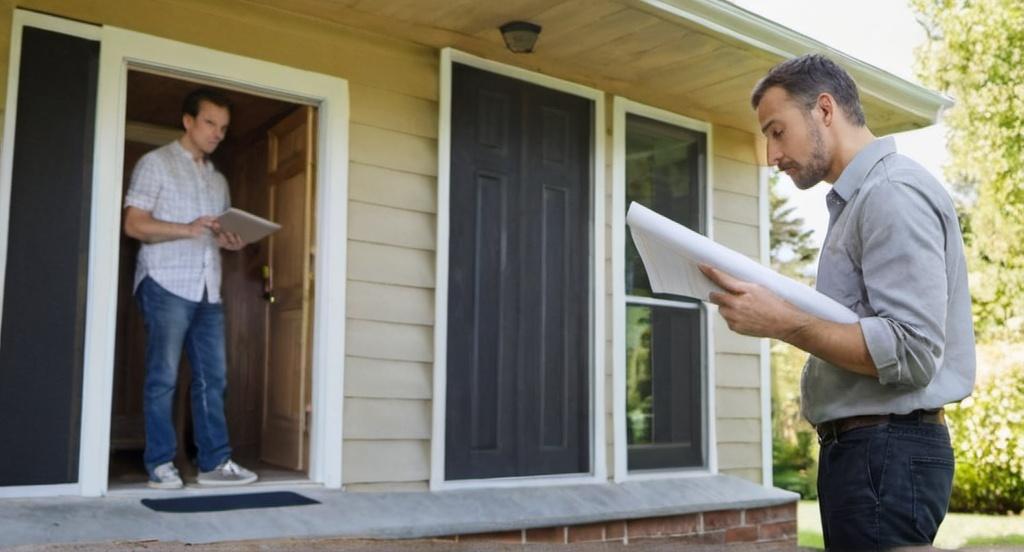Key Take Aways about How to Negotiate a Commercial Lease Like a Pro
- Understand the complexity of commercial leases and know your business needs.
- Familiarize yourself with lease types: Triple Net (NNN), Gross, and Modified Gross leases.
- Employ effective negotiation strategies: research market rates, leverage business strengths, and negotiate rent escalations.
- Focus on key clauses: lease term, renewal options, exclusive use, subleasing, and maintenance responsibilities.
- Seek professional assistance to navigate lease complexities and secure favorable terms.
- Informed decisions lead to a lease supporting your business growth.

Understanding the Basics of Commercial Lease Negotiation
Commercial lease negotiation isn’t just about being a smooth talker with a fancy pen. It’s like haggling at your local flea market but with a lot more riding on it. Knowing what you’re signing up for can save you from tenant’s remorse. Commercial leases are not one-size-fits-all. They’re riddled with terms and clauses that can sometimes seem like they’re written in Klingon. So, the first step is to get a grip on the basics before diving into the nitty-gritty.
Identify Your Business Needs
Your business needs are like your mom’s list for grocery shopping. Crucial, non-negotiable and often forgotten. Know the space you need, ideal location, budget, and any specific provisions your business requires. Are you opening a vegan bakery that needs a kitchen space? Or a quiet corner office for a tech startup? Pin this down before anything else.
Get to Know the Lease Types
The world of commercial leases can feel like an alphabet soup with the likes of triple net (NNN), gross, and modified gross leases. It’s essential to know what these mean because each affects your pocket differently. The triple net lease might seem appealing with lower base rent, but you’ll be handling property taxes, insurance, and maintenance. Meanwhile, a gross lease might have you paying a fixed rent, but the landlord covers the rest. Knowledge of these can prevent future financial surprises.
Triple Net Lease (NNN)
This one’s like buying an all-you-can-eat buffet ticket and then finding out drinks are extra. It’s a popular lease among landlords because it passes on most of the expense responsibilities to the tenant. You’ll be on the hook for property taxes, insurance, and common area maintenance.
Gross Lease
Here, you pay a set monthly fee, and the landlord takes care of the rest. It’s a more predictable option, ideal for businesses looking to keep a lid on monthly outgoings. However, don’t expect the landlord to foot the bill for your excessive water usage.
Modified Gross Lease
Think of this as a hybrid. You and the landlord split the operating expenses, making it a fair middle ground. You pay the base rent and maybe some utilities, but not the whole shebang.
Negotiation Strategies That Work
Negotiation is like a chess game, only without a board and your opponent has doughnuts. The idea is to find a balance that favors both parties, but leans in your favor without burning bridges.
Do Your Research
You’re not going to buy a car without checking the price tag, right? Same goes for leases. Know the going rate for similar spaces in the area. Understand the trends and be aware of any upcoming developments which might affect your business.
Leverage Your Position
Is your business something that increases foot traffic? Or perhaps your brand lends prestige to the building. These are bargaining chips that can be used to sweeten your deal without parting with any cash. Don’t shy away from using them.
Negotiate Rent Escalations
Landlords love sneaking in rent escalations mid-lease. It’s their bread and butter. Be clear on any increase over time and try to negotiate caps on these increments. You don’t want to be shocked with a rent hike right when your business is taking off.
Key Clauses to Focus On
It’s easy to glaze over the fine print when signing a lease. But, hidden within those pages are clauses that can make or break your business.
Lease Term and Renewal Options
Know exactly how long you’re committing to – it’s like a mortgage, but shorter. Consider whether the term offers a renewal option and under what conditions. You don’t want to find yourself booted out just when you’ve built a loyal customer base.
Exclusive Use and Subleasing
You wouldn’t want a rival business opening next door, pinching your customers. An exclusive use clause prevents this. Similarly, subleasing rights give you flexibility if your needs change – like Airbnb for businesses.
Maintenance and Repair Responsibilities
Before any finger-pointing when the ceiling leaks, understand which maintenance tasks fall on you, and which are the landlord’s responsibility. Having this spelled out can prevent disputes and extra costs.
Seek Professional Help
Even if you’re a whiz at negotiations, commercial leases are best navigated with a pro. A real estate attorney or a broker can help you avoid common pitfalls and ensure you’re getting a fair deal. It’s an investment that can save you from costly mistakes down the line.
Final Thoughts
Negotiating a commercial lease involves more than just a firm handshake and a poker face. By knowing your needs, researching your options, and carefully reviewing lease terms, you’ll be in a better position to secure a lease that supports your business’s growth. Remember, it’s all about making informed decisions and not being afraid to ask for what you want. Get these steps right, and you’re on your way to setting up shop in a place that’ll be a boon to your business.